
After Napoleon defeated Austria and Russia at the Battle of Austerlitz on 2 December 1805 he was the ‘Master of Europe’ and could dictate terms on his continental enemies. Upon hearing the news of Austerlitz, British Prime Minister William Pitt referred to a map of Europe and said to an aide “Roll up that map; it will not be wanted these ten years.”
Pitt’s words were prescient, particularly when it came to Germany. In July 1806, 16 German states joined together in a new body called the Confederation of the Rhine. Overseen by Napoleon, the French emperor became the hereditary protector of the new Confederation. There was also a German prince-primate who presided over a quasi-parliamentary body known as the Diet.
The Confederation was designed as a collection of German satellite states that supported the First French Empire. To maintain this disparate group, Napoleon was constitutionally canny. He dissolved the ancient Holy Roman Empire, which meant that the German states no longer held nominal allegiance to Habsburg Austria. Some states were given higher statuses, such as Bavaria and Württemberg, which were upgraded to kingdoms. Others became Model States that were directly ruled by Napoleon’s relatives. The Kingdom of Westphalia was ruled by Napoleon’s youngest brother Jérôme Bonaparte, while the Grand Duchy of Berg was governed by the emperor’s brother-in-law Marshal Joachim Murat.
The Confederation was at its largest in 1808 when it included 36 states of varying sizes. As well as kingdoms and duchies, it consisted of 17 principalities and city-states such as Hamburg, Lübeck and Bremen.
Denne historien er fra Issue 117-utgaven av History of War.
Start din 7-dagers gratis prøveperiode på Magzter GOLD for å få tilgang til tusenvis av utvalgte premiumhistorier og 9000+ magasiner og aviser.
Allerede abonnent ? Logg på
Denne historien er fra Issue 117-utgaven av History of War.
Start din 7-dagers gratis prøveperiode på Magzter GOLD for å få tilgang til tusenvis av utvalgte premiumhistorier og 9000+ magasiner og aviser.
Allerede abonnent? Logg på
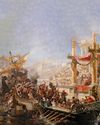
NAUMACHIA TRUTH BEHIND ROME'S GLADIATOR SEA BATTLES
In their quest for evermore novel and bloody entertainment, the Romans staged enormous naval fights on artificial lakes
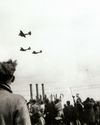
OPERATION MANNA
In late April 1945, millions of Dutch civilians were starving as Nazi retribution for the failed Operation Market Garden cut off supplies. eet as In response, Allied bombers launched a risky mission to air-drop food

GASSING HITLER
Just a month before the end of WWI, the future Fuhrer was blinded by a British shell and invalided away from the frontline. Over a century later, has the artillery brigade that launched the fateful attack finally been identified?
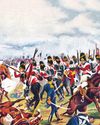
SALAMANCA
After years of largely defensive campaigning, Lieutenant General Arthur Wellesley went on the offensive against a French invasion of Andalusia

HUMBERT 'ROCKY'VERSACE
Early in the Vietnam War, a dedicated US Special Forces officer defied his merciless Viet Cong captors and inspired his fellow POWs to survive
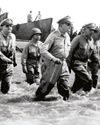
LEYTE 1944 SINKING THE RISING SUN
One of the more difficult island campaigns in WWII's Pacific Theatre saw a brutal months-long fight that exhausted Japan’s military strength

MAD DAWN
How technology transformed strategic thinking and military doctrine from the Cold War to the current day
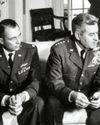
BRUSHES WITH ARMAGEDDON
Humanity came close to self-annihilation with the Cuban Missile Crisis, Broken Arrows’ and other nuclear near misses
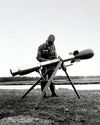
THE DEADLY RACE
How the road to peace led to an arms contest between the USA and USSR, with prototypes, proliferation and the world’s biggest bomb

THE MANHATTAN PROJECT
Einstein, Oppenheimer and the race to beat Hitler to the bomb. How a science project in the desert helped win a war